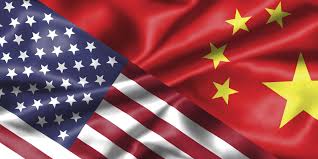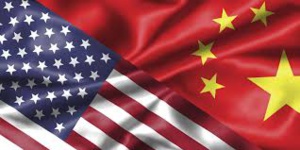According to reports citing a senior Chinese official, trade representatives of China and the United States are striving very hard to arrive at a trade deal which would be equitable for both the countries and for the entire global business community which would include the elimination of the tit-for-tat tariffs.
While stating his optimism for the negotiations with Washington, Chinese Vice Commerce Minister Wang Shouwen said that a final trade agreement also needs to be equitable for both China and the US.
It has been seven months that the two largest economies of the world have been engaged in an acrimonious battle in which both the countries have imposed import tariffs on each others’ goods worth billions of dollars. The US demands that China bring in some structural changes to the way it trades, forces transfer of technology against market access and alleged theft of American intellectual property.
The positive nature of the talks cause US president Donald Trump to indefinitely delay increase of tariffs on Chinese goods worth $200 billion which was to be implemented from March 2.
workers, farmers, exporters and manufacturers were affected by the imposition of tariffs by both parties, said Wang which speaking at a news conference on the sidelines of China’s ongoing annual meeting of parliament.
“It hurts investor confidence and delays corporate investment decisions,” said Wang, who has been deeply involved in the trade talks with the United States.
“Now, the economic and trade teams of the two sides are making full efforts to communicate and negotiate in order to reach an agreement in line with the principles and directions decided by the two heads of states,” he added.
“That is to remove all the tariffs imposed on each other, so that bilateral trade relations between China and the United States can return to normal.”
Wang said that the working teams of the two countries were working with each other “day and night”, Wang said.
Finding areas of common interest has been the focus of implementing additional effort in the trade discussions of the trade talks. He said that Chinese Vice Premier Liu He and U.S. Trade Representative Robert Lighthizer enjoyed take out food during the talks.
“Vice Premier Liu had a hamburger, and Lighthizer had eggplant and chicken,” he added, describing a common Chinese dish.
“Throughout the negotiations, there was coffee and tea, but the two of them did not drink any coffee, did not drink any tea. They both drank boiled water. This is to find common ground.”
Generous subsidies to its companies by China and allowing US companies to enter into the domestic Chinese market has also been demanded by the US.
The head of China’s state assets regulator said on Saturday that the state owned companies in China are not given subsidies on a systematic basis when asked about the alleged implicit preferential treatment towards the state owned firms. .
“It can be said that China does not have any laws and regulations specifically addressing the issue of subsidies for state-owned enterprises,” said Xiao Yaqing, head of the State-owned Assets Supervision and Administration Commission (Sasac).
“Therefore, China is currently cleaning up and standardizing various subsidies,” Xiao told reporters on the sidelines of the annual meeting of parliament.
(Source:www.moneycontrol.com)
While stating his optimism for the negotiations with Washington, Chinese Vice Commerce Minister Wang Shouwen said that a final trade agreement also needs to be equitable for both China and the US.
It has been seven months that the two largest economies of the world have been engaged in an acrimonious battle in which both the countries have imposed import tariffs on each others’ goods worth billions of dollars. The US demands that China bring in some structural changes to the way it trades, forces transfer of technology against market access and alleged theft of American intellectual property.
The positive nature of the talks cause US president Donald Trump to indefinitely delay increase of tariffs on Chinese goods worth $200 billion which was to be implemented from March 2.
workers, farmers, exporters and manufacturers were affected by the imposition of tariffs by both parties, said Wang which speaking at a news conference on the sidelines of China’s ongoing annual meeting of parliament.
“It hurts investor confidence and delays corporate investment decisions,” said Wang, who has been deeply involved in the trade talks with the United States.
“Now, the economic and trade teams of the two sides are making full efforts to communicate and negotiate in order to reach an agreement in line with the principles and directions decided by the two heads of states,” he added.
“That is to remove all the tariffs imposed on each other, so that bilateral trade relations between China and the United States can return to normal.”
Wang said that the working teams of the two countries were working with each other “day and night”, Wang said.
Finding areas of common interest has been the focus of implementing additional effort in the trade discussions of the trade talks. He said that Chinese Vice Premier Liu He and U.S. Trade Representative Robert Lighthizer enjoyed take out food during the talks.
“Vice Premier Liu had a hamburger, and Lighthizer had eggplant and chicken,” he added, describing a common Chinese dish.
“Throughout the negotiations, there was coffee and tea, but the two of them did not drink any coffee, did not drink any tea. They both drank boiled water. This is to find common ground.”
Generous subsidies to its companies by China and allowing US companies to enter into the domestic Chinese market has also been demanded by the US.
The head of China’s state assets regulator said on Saturday that the state owned companies in China are not given subsidies on a systematic basis when asked about the alleged implicit preferential treatment towards the state owned firms. .
“It can be said that China does not have any laws and regulations specifically addressing the issue of subsidies for state-owned enterprises,” said Xiao Yaqing, head of the State-owned Assets Supervision and Administration Commission (Sasac).
“Therefore, China is currently cleaning up and standardizing various subsidies,” Xiao told reporters on the sidelines of the annual meeting of parliament.
(Source:www.moneycontrol.com)






